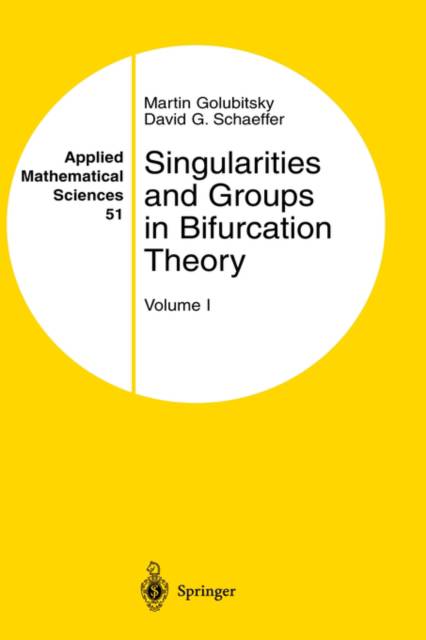
- Afhalen na 1 uur in een winkel met voorraad
- Gratis thuislevering in België vanaf € 30
- Ruim aanbod met 7 miljoen producten
- Afhalen na 1 uur in een winkel met voorraad
- Gratis thuislevering in België vanaf € 30
- Ruim aanbod met 7 miljoen producten
Zoeken
€ 181,95
+ 363 punten
Uitvoering
Omschrijving
This book has been written in a frankly partisian spirit-we believe that singularity theory offers an extremely useful approach to bifurcation prob- lems and we hope to convert the reader to this view. In this preface we will discuss what we feel are the strengths of the singularity theory approach. This discussion then Ieads naturally into a discussion of the contents of the book and the prerequisites for reading it. Let us emphasize that our principal contribution in this area has been to apply pre-existing techniques from singularity theory, especially unfolding theory and classification theory, to bifurcation problems. Many ofthe ideas in this part of singularity theory were originally proposed by Rene Thom; the subject was then developed rigorously by John Matherand extended by V. I. Arnold. In applying this material to bifurcation problems, we were greatly encouraged by how weil the mathematical ideas of singularity theory meshed with the questions addressed by bifurcation theory. Concerning our title, Singularities and Groups in Bifurcation Theory, it should be mentioned that the present text is the first volume in a two-volume sequence. In this volume our emphasis is on singularity theory, with group theory playing a subordinate role. In Volume II the emphasis will be more balanced. Having made these remarks, Iet us set the context for the discussion of the strengths of the singularity theory approach to bifurcation. As we use the term, bifurcation theory is the study of equations with multiple solutions.
Specificaties
Betrokkenen
- Auteur(s):
- Uitgeverij:
Inhoud
- Aantal bladzijden:
- 466
- Taal:
- Engels
- Reeks:
- Reeksnummer:
- nr. 51
Eigenschappen
- Productcode (EAN):
- 9780387909998
- Verschijningsdatum:
- 5/12/1984
- Uitvoering:
- Hardcover
- Formaat:
- Genaaid
- Afmetingen:
- 156 mm x 234 mm
- Gewicht:
- 857 g

Alleen bij Standaard Boekhandel
+ 363 punten op je klantenkaart van Standaard Boekhandel
Beoordelingen
We publiceren alleen reviews die voldoen aan de voorwaarden voor reviews. Bekijk onze voorwaarden voor reviews.











